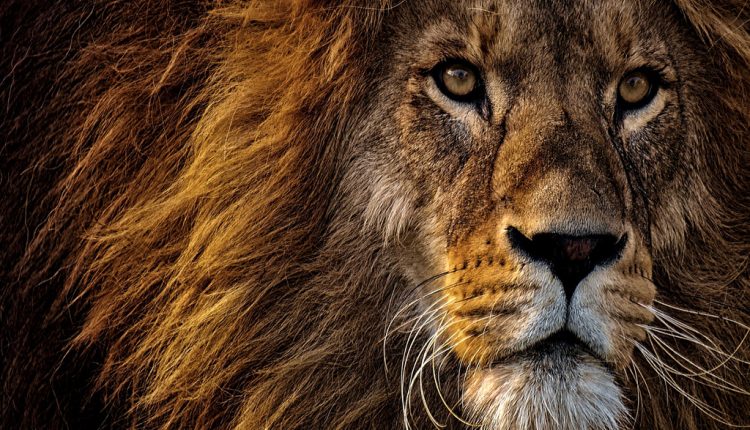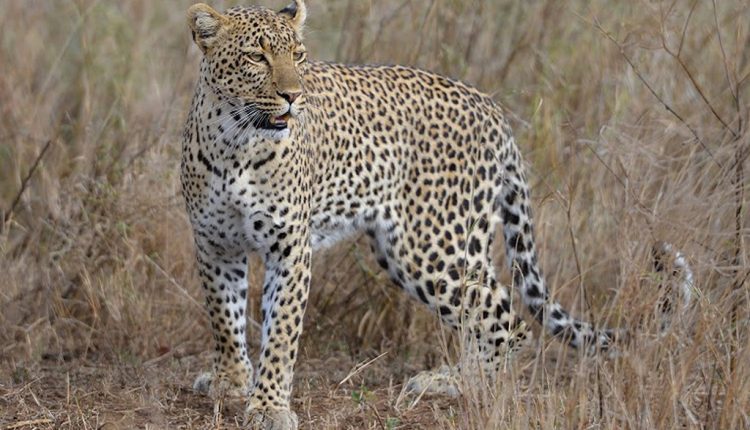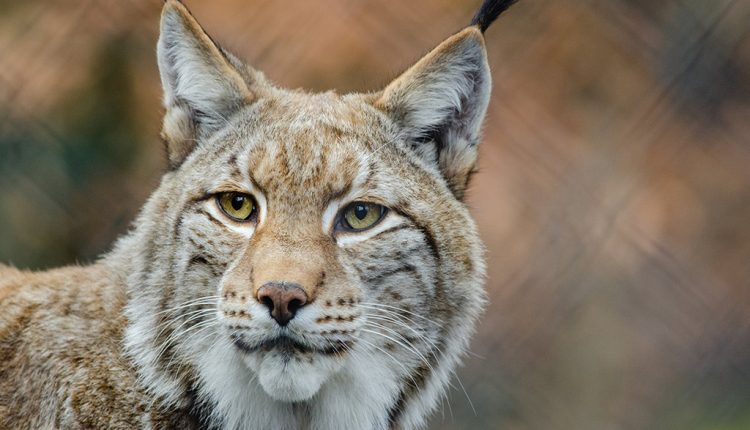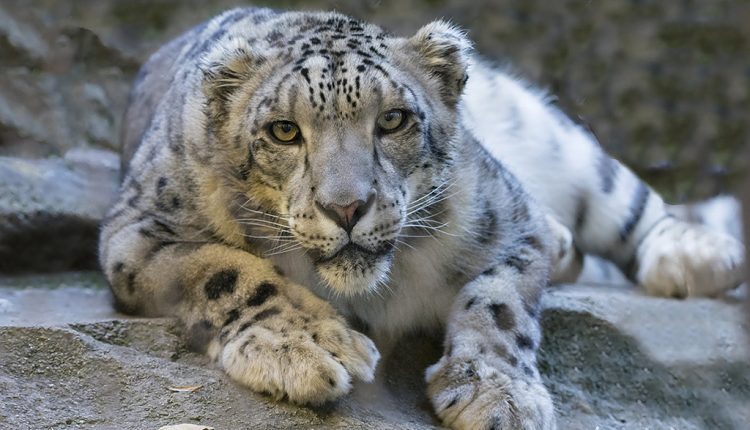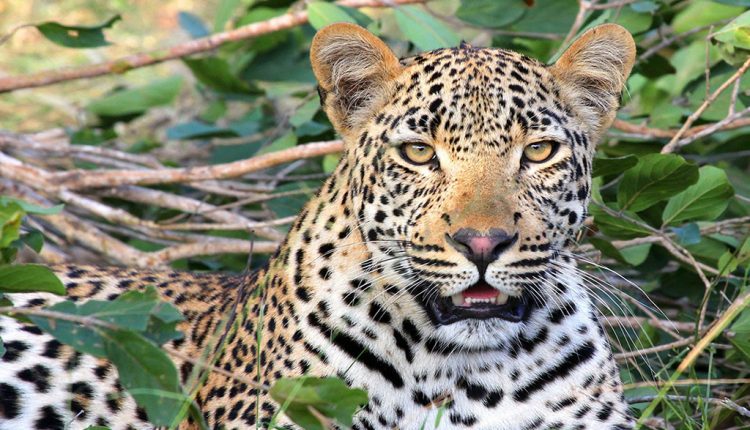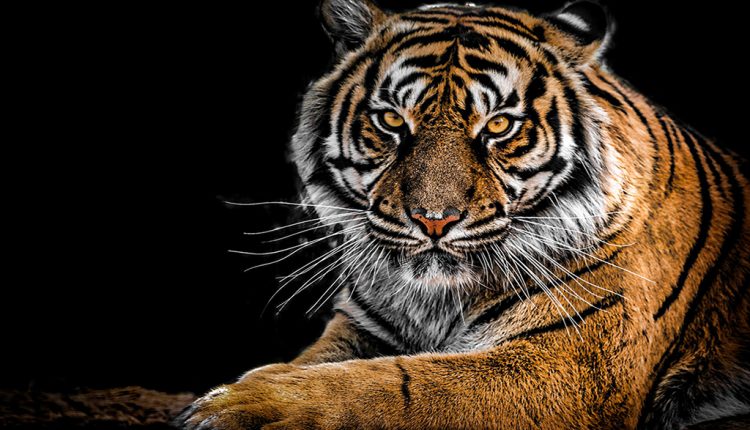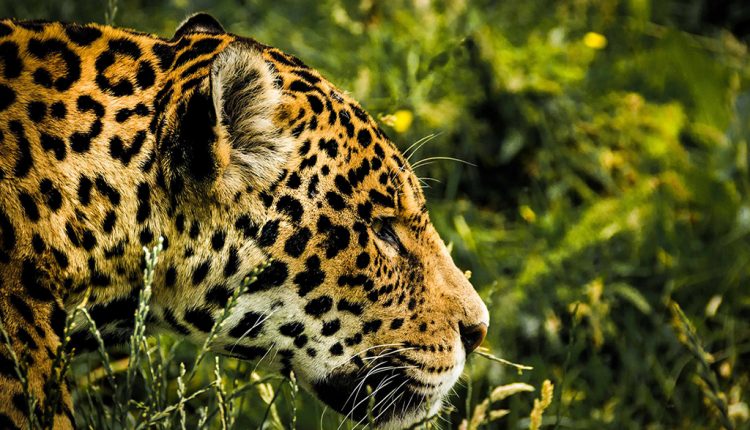
EXPLAINER: ‘Big Cat’ bill limits human ownership
In February 2019, The Big Cat Public Safety Act was brought before the United States Congress. The Big Cat Public Safety Act is a federal bill that would restrict human beings from owning “big cats” as pets and stop exploitative roadside zoos from offering cub petting and photo opportunities. If passed, this bill will also restrict direct contact between the public and “big cats.”
BACKGROUND ON BIG CATS
The term “big cats” refers to any of the five living members of the genus Panthera including: tiger, lion, jaguar, leopard and snow leopard. Some of the other big cats include lynx and cheetah. Big cats are wild animals and despite the fact that some have been domesticated over centuries, these cats are born to hunt and attack. Thousands of big cats are currently being kept captive around the United States. Some end up being sold to another exhibitor, and some animals end up in the black-market trade for wildlife parts.
TYPES OF OWNERSHIPS
There are many types of ownerships when it comes to big cats. One ownership includes private zoos, which include roadside zoos that are meant for motorists to stop and see, feed or play with the animals. Another ownership is public zoos, in which these animals are being kept in established zoos. There are personal pets, in which animals are kept in people’s homes. There are also sanctuaries, where animals are brought to live and are protected for the rest of their lives.
EXAMPLE OF INDIVIDUAL OWNERSHIP IN HOUSTON
In February 2019, there was a tiger found in a cage of a vacant home in Houston. The owner of the tiger was charged with a misdemeanor for failing to provide water, food, care and shelter for the tiger. The tiger was found in a small cage that only allowed room for the tiger to stand up. In this case, The Big Cat Public Safety Act (S. 2561 and H.R. 1380) would have protected the tiger from being abandoned in that home because it would have made it illegal for the owner to have had the tiger in the first place.
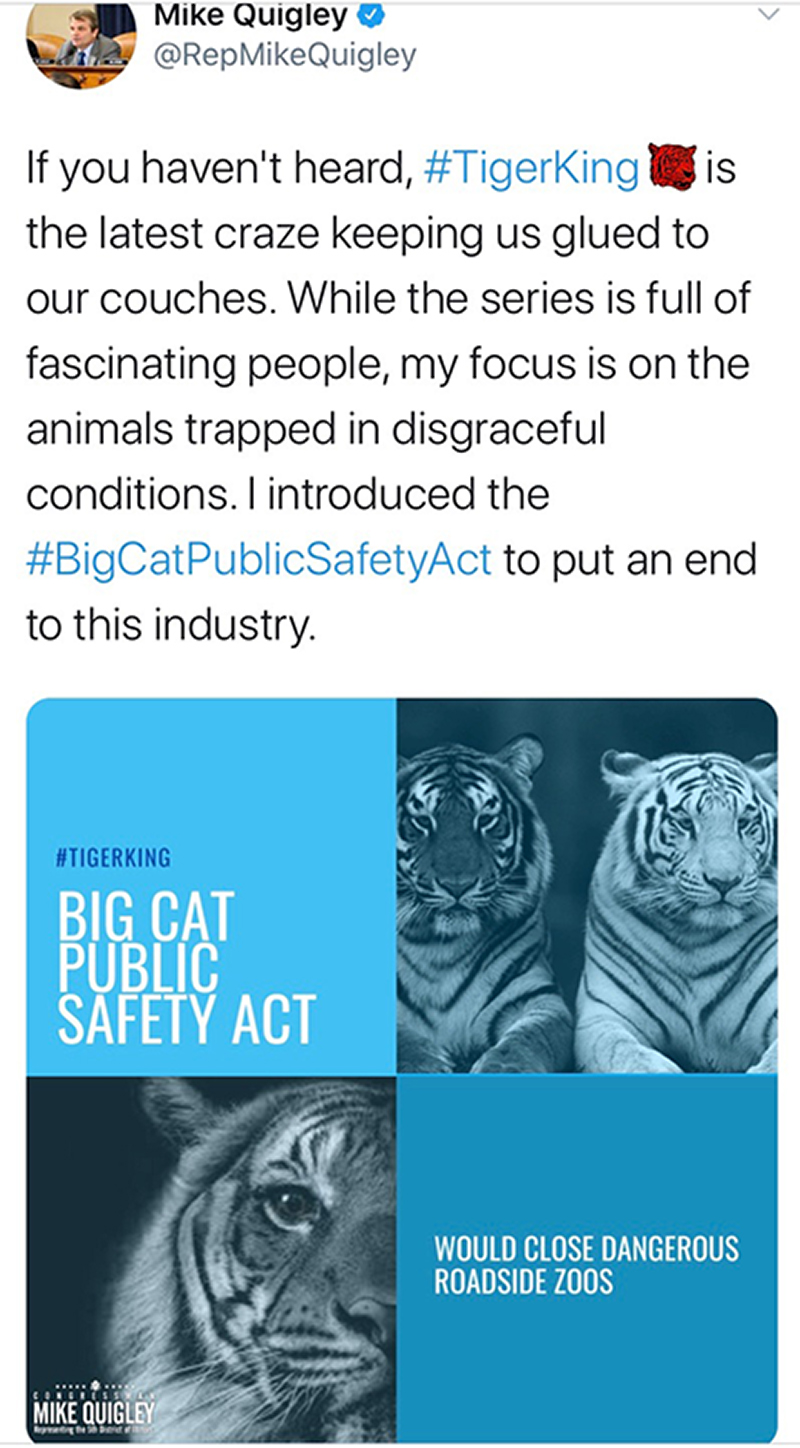
WHAT THE BILL DOES
The Big Cat Public Safety Act (S. 2561 and H.R. 1380) would prohibit individual possession of big cats. This bill would amend the Captive Wildlife Safety Act to prohibit individuals who are not licensed by the United States Department of Agriculture to own any big cat. Anyone currently owning a big cat, is required to register their animals with the government, so that first responders and animal control officers are aware that big cat(s) are in their communities. This bill focuses on privately owned animals and excludes sanctuaries, universities, and zoos.
The United States House of Representatives members sponsoring The Big Cat Public Safety Act are Earl Blumenauer, D-OR and Mike Quigley, D-IL. The representative from the United States Senate sponsoring this bill is Richard Blumenthal, D-CT.
ALL ACTION BY H.R.1380
- On Feb. 26, 2019, The Big Cat Public Safety Act was introduced in the House of Representatives of the United States Congress. The House referred to the House Committee on Natural Resources.
- On March 12, 2019, the Committee on Natural Resources referred to the Subcommittee on Water, Oceans, and Wildlife.
- On March 26, 2019, the Subcommittee hearing was held by the House Natural Resources Subcommittee on Water, Oceans, and Wildlife
- On Sept. 18, 2019, the Subcommittee on Water, Oceans, and Wildlife was discharged. The Committee on Natural Resources consideration and mark-up session held. The Committee on Natural Resources ordered the bill to be reported by the Yeas and Nays: 21-14.
ALL ACTION BY S.2561
- On Sept. 26, 2019, The United States Senate read the bill twice and referred to the Committee on Environment and Public Works.
- As of right now, The Big Cat Public Safety Act has been introduced into the United States House of Representatives and is currently being introduced in the United States Senate.
REACTIONS FROM SUPPORTERS
Supporters for The Big Cat Public Safety Act include organizations such as: Big Cat Rescue, People for the Ethical Treatment of Animals (PETA), Animal Welfare Institute, The Human Society of the United States and Born Free USA. Some organizations have written their support on their Twitter accounts.
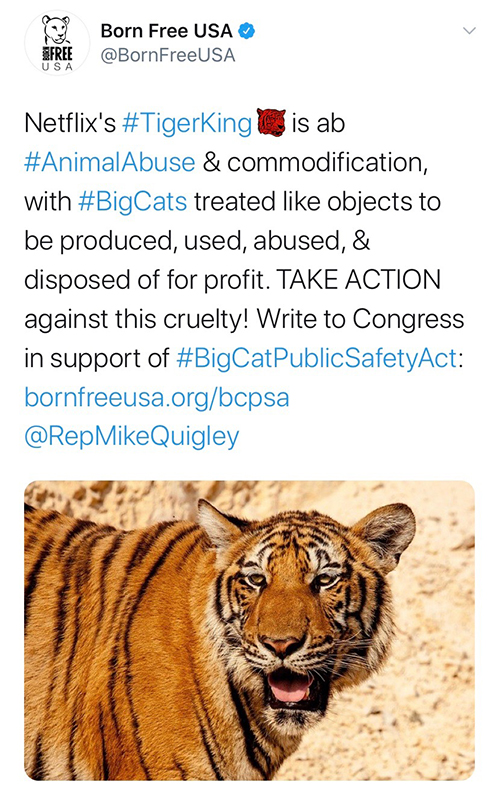
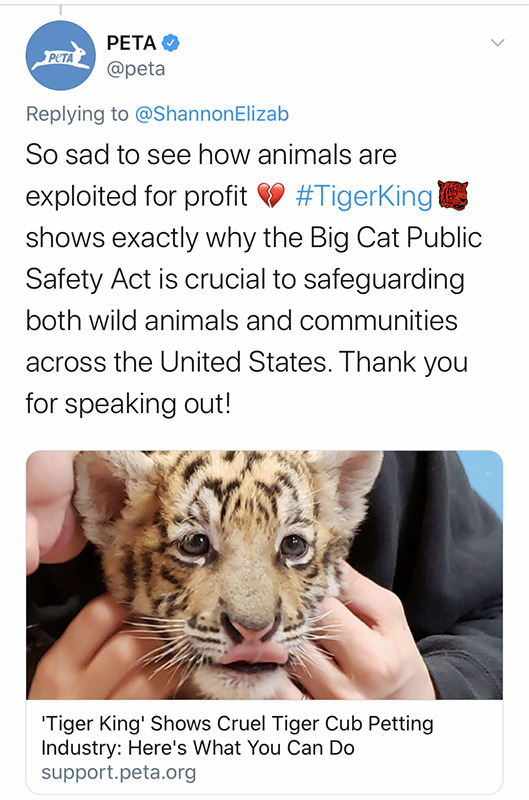
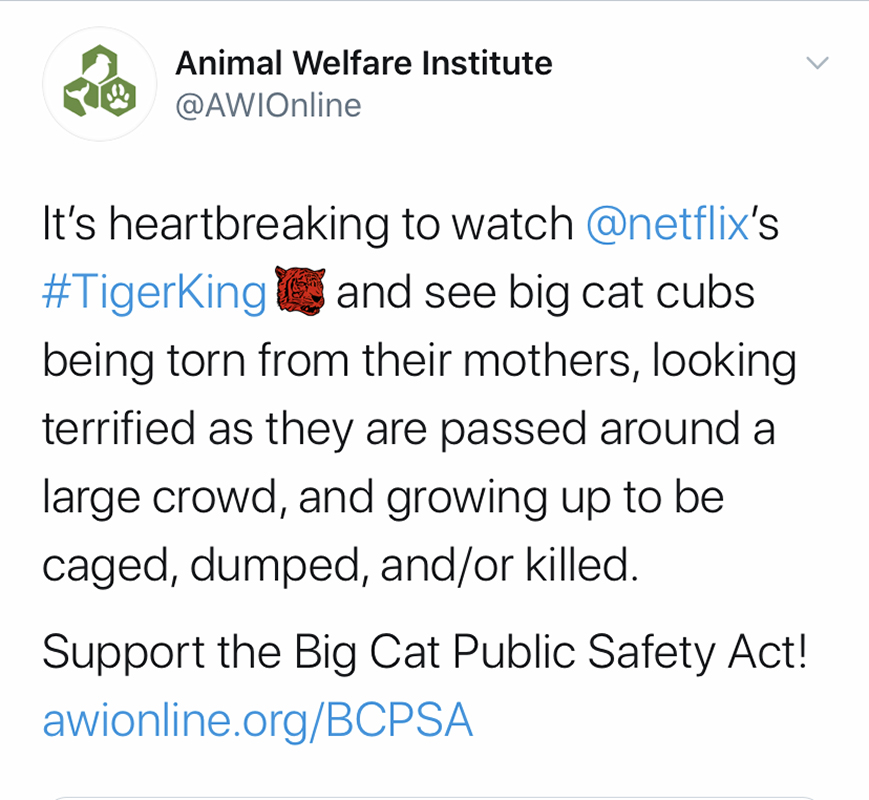
REACTIONS FROM NON-SUPPORTERS
While there are many people who support The Big Cat Public Safety Act, there are some people who do not. Joseph Maldonado, known as Joe Exotic, a former American zoo operator and the star of the Netflix documentary “Tiger King” is one of those people. Joe Exotic created a video for his YouTube channel in 2015 in which he told people to not vote for the Big Cat Public Safety Act. In the video, he says people should not support The Big Cat Public Safety Act (S. 2561 and H.R. 1380) because it will take away people’s right to freedom. Thus, he states, if this bill gets passed, the public will no longer be able to have direct contact with these animals.
TO SHOW SUPPORT
There are ways individuals can support these animals if one would like to do so. The World Wildlife Fund (WWF) organization has a section on their website where one can choose to protect tigers and support The Big Cat Public Safety Act. As of April 2020, WWF has 443,253 supporters, and their goal is 750,000. WWF is urging people to ask their elected officials to cosponsor The Big Cat Public Safety Act.
Directions on how one can support the Big Cat Public Safety Act:
- Go onto the WWF website
- Click the species tab Click tigers
- Scroll down until one sees the “how you can help” section Click on protect tigers

